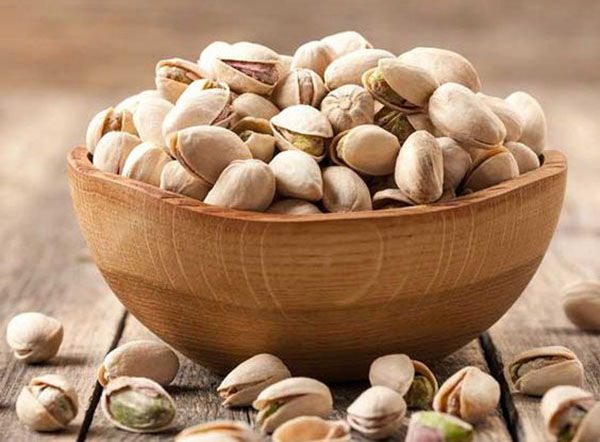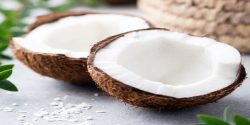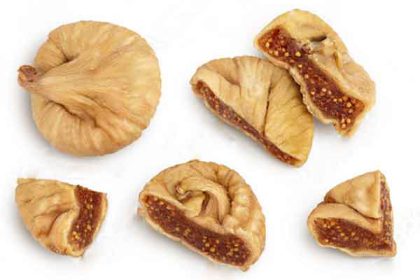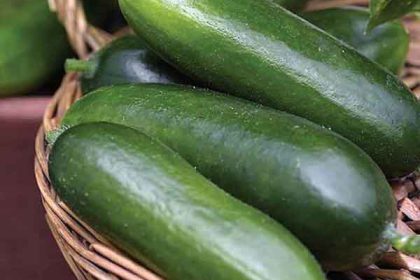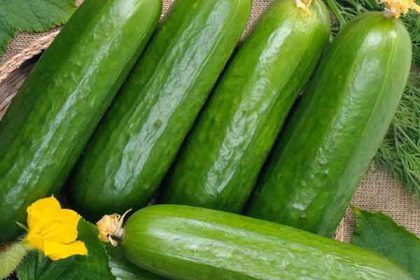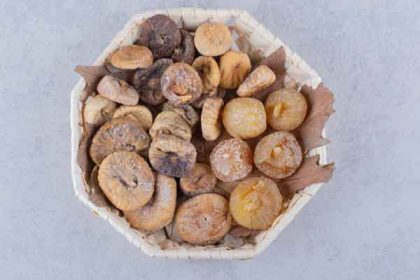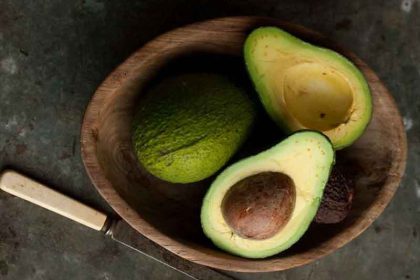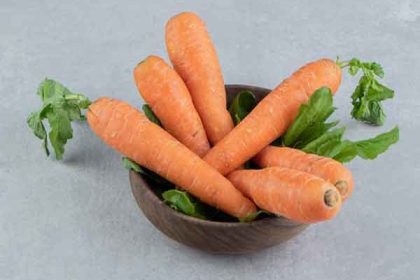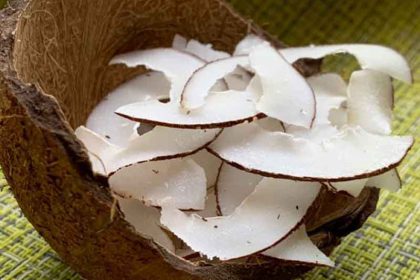Pistachio benefits for women and men and skin and weight loss
pistachio benefits
Pistachio benefits for women and men and skin and weight loss on Nicholi site. We hope this article will be of interest to you.
This text discusses the health benefits and potential side effects of eating pistachios. The benefits include being a good source of nutrients, aiding in weight management, improving heart health, lowering blood sugar, improving gut and skin health, and having anti-inflammatory effects. However, consuming too many pistachios can lead to side effects such as allergic reactions, gastrointestinal problems, high-calorie intake, high sodium intake, and interference with certain medications. The text also discusses the potential benefits of eating pistachios for women and men, including heart health, weight management, hormonal health, digestive health, and skin health. Additionally, the text notes that pistachios may be helpful in reducing belly fat when consumed in moderation as part of a healthy diet and lifestyle.
Pistachio benefits
Pistachios are nutritious nuts that offer a wide range of health benefits.
Rich in nutrients: Pistachios are a good source of protein, fiber, healthy fats, vitamins, and minerals such as copper, phosphorus, and manganese.
May aid weight management: Pistachios may help with weight management due to their high fiber and protein content, which can help increase feelings of fullness and reduce calorie intake.
May improve heart health: Pistachios have been shown to improve several risk factors for heart disease, such as reducing cholesterol and triglyceride levels.
May lower blood sugar: Pistachios have a low glycemic index, which means they do not cause a sharp increase in blood sugar levels.
May improve gut health: Pistachios contain prebiotic fiber, which can promote the growth of beneficial gut bacteria and improve digestion.
May have anti-inflammatory effects: Pistachios contain antioxidants and anti-inflammatory compounds, which may help reduce inflammation in the body.
May improve skin health: Pistachios are a good source of vitamin E, which is important for skin health and can help protect against damage from the sun and other environmental factors.
Overall, including pistachios as part of a healthy, balanced diet can offer a range of health benefits.
Pistachio side effects
While pistachios are generally safe and healthy to consume, some people may experience side effects from eating them, especially if they have an allergy or consume large amounts. Here are some potential side effects of pistachios:
Allergic reactions: Some people may be allergic to pistachios and experience symptoms such as itching, hives, swelling, or difficulty breathing. If you have a known nut allergy, it’s important to avoid pistachios and other nuts.
Gastrointestinal problems: Eating too many pistachios can cause gastrointestinal problems such as bloating, gas, diarrhea, or constipation, especially if you consume them in large amounts.
High-calorie intake: Pistachios are relatively high in calories, and consuming large amounts can lead to weight gain. It’s important to consume them in moderation and incorporate them into a balanced diet.
High sodium intake: Some pistachios may be salted, which can lead to high sodium intake if consumed in large amounts. Excessive sodium intake can increase blood pressure and contribute to other health problems.
Interference with certain medications: Pistachios contain a compound called tyramine, which can interact with certain medications such as MAO inhibitors used to treat depression and other conditions. It’s important to speak with a healthcare provider if you are taking any medications and considering consuming pistachios.
Overall, if you do not have an allergy to pistachios and consume them in moderation as part of a balanced diet, you are unlikely to experience any negative side effects.
Pistachio benefits for women
Pistachios are a nutrient-dense nut that can provide a range of health benefits for women. Here are some potential benefits of eating pistachios:
Heart health: Pistachios are a good source of monounsaturated and polyunsaturated fats, which can help to lower cholesterol levels and reduce the risk of heart disease.
Weight management: Pistachios are a low-calorie, high-protein snack that can help women to feel full and satisfied, potentially leading to reduced calorie intake and weight loss.
Hormonal health: Pistachios are a good source of vitamin B6, which plays a role in the production of hormones like serotonin and dopamine. This can help to regulate mood, reduce PMS symptoms, and support reproductive health.
Digestive health: Pistachios are high in fiber, which can help to improve digestion, regulate bowel movements, and reduce the risk of constipation.
Skin health: Pistachios contain vitamin E, which is an antioxidant that can help to protect the skin from damage caused by free radicals. This can help to prevent premature aging and promote overall skin health.
It’s important to note that while pistachios can be a healthy addition to a woman’s diet, they should be consumed in moderation as they are high in calories. A serving size of pistachios is typically around 1 ounce or 49 kernels.
Pistachio benefits for men
Pistachios have several potential benefits for men’s health, Pistachios are a rich source of heart-healthy monounsaturated and polyunsaturated fatty acids, fiber, and antioxidants like lutein and zeaxanthin. Eating pistachios as part of a healthy diet may help reduce the risk of heart disease and lower cholesterol levels. Pistachios contain a variety of nutrients, such as vitamin E, copper, and zinc, that are important for maintaining a healthy immune system. Eating pistachios regularly may help men ward off infections and diseases. Pistachios are high in arginine, an amino acid that helps improve blood flow and increase sexual function in men. Some studies suggest that eating pistachios regularly may help improve erectile dysfunction.
Pistachios are a low-calorie, high-protein snack that can help men feel fuller for longer and curb cravings. Eating pistachios as part of a balanced diet may help men maintain a healthy weight. Pistachios are a good source of vitamin B6, which is important for brain health and cognitive function. Eating pistachios regularly may help men improve their memory and concentration. Overall, including pistachios as part of a balanced diet may provide several health benefits for men. However, it’s important to remember that pistachios should be consumed in moderation as they are also high in calories.
Pistachios and belly fat
Pistachios may be helpful in reducing belly fat when consumed in moderation as part of a healthy diet and lifestyle. Pistachios are a good source of protein, fiber, and healthy fats, which can help promote feelings of fullness and prevent overeating. One study found that individuals who consumed pistachios as part of a healthy diet had a reduction in belly fat compared to those who did not consume pistachios. The study also found that pistachios can help improve insulin sensitivity, which is important for maintaining healthy blood sugar levels and preventing the development of type 2 diabetes. However, it’s important to keep in mind that pistachios are also high in calories, so consuming too many can lead to weight gain. To reap the potential belly fat-reducing benefits of pistachios, it’s important to consume them in moderation and as part of a healthy, balanced diet that includes plenty of fruits, vegetables, lean protein, and whole grains, while also engaging in regular physical activity.
Pistachio benefits for skin
Pistachios have several potential benefits for skin health, including:
Improved Skin Barrier Function: Pistachios are a good source of vitamin E, which is an antioxidant that helps protect the skin from damage caused by free radicals. Vitamin E also helps improve skin barrier function, which can help prevent moisture loss and improve skin hydration.
Reduced Inflammation: Pistachios contain anti-inflammatory compounds, such as omega-3 fatty acids, that can help reduce inflammation in the skin. This can be helpful for individuals with inflammatory skin conditions, such as acne and eczema.
Anti-Aging Benefits: Pistachios are rich in antioxidants, which can help protect the skin from damage caused by UV radiation and environmental pollutants. This can help reduce the appearance of fine lines and wrinkles, and keep the skin looking youthful and healthy.
Improved Skin Tone and Texture: Pistachios contain a variety of nutrients, such as vitamin A, vitamin C, and copper, that are important for maintaining healthy skin tone and texture. These nutrients can help improve skin elasticity, reduce the appearance of dark spots and hyperpigmentation, and promote a more even skin tone.
Overall, including pistachios as part of a healthy diet may provide several benefits for skin health. However, it’s important to remember that diet alone may not be enough to improve skin health, and it’s also important to protect the skin from sun damage and use a daily moisturizer to help maintain skin hydration.
Pistachio benefits for male fertility
Pistachios are a type of tree nut that is rich in nutrients and has been shown to provide several health benefits. While there is limited research specifically on the effects of pistachios on male fertility, there are some potential benefits.
Improved sperm quality: Pistachios are high in antioxidants, which can help to protect sperm from damage and improve their overall quality.
Increased sperm count: Pistachios are also rich in nutrients such as zinc, which is important for male reproductive health and has been shown to increase sperm count.
Improved erectile function: Pistachios contain arginine, an amino acid that helps to improve blood flow and may improve erectile function in men.
Reduced oxidative stress: Pistachios are high in antioxidants, which can help to reduce oxidative stress in the body. This can be beneficial for male fertility, as oxidative stress has been linked to poor sperm quality.
It’s worth noting that while pistachios may have some potential benefits for male fertility, they should not be relied upon as a sole treatment for fertility issues. It’s important to consult with a healthcare professional if you’re experiencing fertility problems.
Calories in 20 pistachios
The number of calories in 20 pistachios can vary depending on the size and variety of the pistachios. On average, a single pistachio nut contains around 3-4 calories. Therefore, 20 pistachios would contain approximately 60-80 calories. However, it’s important to note that pistachios are also a good source of protein, fiber, and healthy fats, which can make them a nutritious snack option in moderation.
Pistachio Benefits for female fertility
There is some evidence to suggest that consuming pistachios may have potential benefits for female fertility. Pistachios are rich in antioxidants, which can help protect the body’s cells from damage. This may be particularly beneficial for women trying to conceive, as oxidative stress can have a negative impact on fertility. Pistachios are a good source of healthy fats, including monounsaturated and polyunsaturated fats. These fats are important for overall health, and may also be helpful for female fertility. One study found that women who consumed more monounsaturated and polyunsaturated fats had a higher likelihood of conception via IVF.
Pistachios are a good source of several important nutrients for female fertility, including vitamin E, folate, and zinc. Vitamin E is an antioxidant that may help protect the reproductive system, while folate and zinc are important for healthy ovulation. It’s worth noting that there isn’t a lot of research specifically on pistachios and female fertility, so more studies are needed to fully understand the potential benefits. However, incorporating pistachios into a healthy diet is unlikely to be harmful and may offer some benefits for overall health and fertility.
Pistachio benefits for sleep
Pistachios may have some potential benefits for sleep due to their nutrient content and their effect on blood sugar levels.
Magnesium content: Pistachios are a good source of magnesium, a mineral that is important for sleep regulation. Magnesium helps to regulate neurotransmitters that are involved in the sleep-wake cycle, and may also help to reduce stress and anxiety.
Protein content: Pistachios are a good source of protein, which can help to stabilize blood sugar levels and prevent spikes and crashes that can disrupt sleep.
Melatonin content: Pistachios contain small amounts of melatonin, a hormone that regulates sleep-wake cycles. While the amount of melatonin in pistachios is relatively low compared to other food sources, it may still have a beneficial effect on sleep.
It’s worth noting that eating pistachios alone may not be enough to improve sleep quality and that other lifestyle factors such as exercise, stress management, and a consistent sleep schedule are also important for good sleep. However, incorporating pistachios into a healthy diet may offer some benefits for overall health and sleep.
How many pistachios should you eat in a day?
The number of pistachios you should eat in a day depends on your overall diet and nutritional needs. Pistachios are nutritious snacks and are a good source of protein, healthy fats, fiber, and various vitamins and minerals. In general, it is recommended to consume nuts in moderation as they are calorie-dense. A serving size of pistachios is usually around 1 ounce or 28 grams, which is approximately 49 pistachios. Eating a handful of pistachios as a snack once or twice a day can be a healthy addition to your diet, but it is important to keep in mind that they should be consumed as part of a balanced diet, and not in excess.
Benefits of pistachios for weight loss
Pistachios can be a healthy addition to a weight-loss diet due to several reasons: Pistachios are a low-calorie, nutrient-dense snack that provides a variety of vitamins, minerals, and antioxidants. They also contain protein and fiber, which can help keep you feeling full for longer, reducing the temptation to snack on less healthy foods. Pistachios are relatively high in protein compared to other nuts. Protein is a crucial nutrient that can help keep you feeling full and satisfied, which can make it easier to stick to a calorie-restricted diet.
Pistachios take time to open and eat, which can help slow down the eating process, making it easier to practice mindful eating. Mindful eating involves being present at the moment while eating, which can help reduce overeating and improve food choices. Some studies suggest that pistachios may help boost metabolism, which can lead to increased calorie burning and potentially aid in weight loss. However, it’s important to keep in mind that pistachios are still calorie-dense, and excessive consumption can hinder weight loss efforts. It’s best to incorporate them into a balanced diet and consume them in moderation.
Pistachio benefits for hair
Pistachios can provide several benefits for hair health, including:
Rich in Nutrients: Pistachios are a rich source of nutrients that are essential for healthy hair, including protein, biotin, vitamin E, and minerals such as copper and zinc. These nutrients can help promote hair growth, strengthen hair strands, and prevent hair breakage.
Antioxidant Properties: Pistachios are rich in antioxidants such as vitamin E, which can help protect hair from damage caused by free radicals. Free radicals can damage hair cells, leading to hair breakage, split ends, and dull-looking hair.
Moisturizing Properties: Pistachios are a rich source of healthy fats, such as monounsaturated and polyunsaturated fats, which can help moisturize the hair and scalp, preventing dryness and hair damage.
Anti-inflammatory Properties: Pistachios contain anti-inflammatory compounds, such as omega-3 fatty acids, which can help reduce inflammation in the scalp. Inflammation can disrupt the hair growth cycle and lead to hair loss.
Prevents Dandruff: Pistachios contain zinc, which is an essential mineral for scalp health. Zinc helps regulate the production of sebum in the scalp, preventing dandruff and other scalp issues.
Overall, incorporating pistachios into your diet can help promote healthy hair growth and prevent hair damage. However, it’s important to keep in mind that a balanced diet and proper hair care are essential for healthy hair.
Pistachio benefits for the brain
Pistachios offer several benefits for brain health due to their nutrient content, including:
Rich in Antioxidants: Pistachios contain antioxidants such as vitamin E and polyphenols that can help protect the brain from oxidative stress. Oxidative stress can damage brain cells and contribute to the development of neurodegenerative diseases.
Improves Cognitive Function: Pistachios contain healthy fats, such as monounsaturated and polyunsaturated fats, that can help improve cognitive function. These fats help support brain health and may help improve memory and learning.
Enhances Mood: Pistachios contain vitamin B6, which plays a role in the production of neurotransmitters such as serotonin and dopamine. These neurotransmitters are responsible for regulating mood, and adequate levels of vitamin B6 can help improve mood and reduce symptoms of depression.
Reduces Inflammation: Pistachios contain anti-inflammatory compounds, such as omega-3 fatty acids, that can help reduce inflammation in the brain. Chronic inflammation is associated with neurodegenerative diseases such as Alzheimer’s and Parkinson’s.
Boosts Energy: Pistachios contain protein and healthy fats, which can provide sustained energy to the brain. Consuming pistachios as a snack can help improve mental alertness and reduce brain fog.
Overall, incorporating pistachios into your diet can help support brain health and cognitive function. However, it’s important to keep in mind that a balanced diet and regular exercise are essential for overall brain health.
Pistachio benefits for sperm
Pistachios offer several benefits for sperm health due to their nutrient content, including:
Pistachios contain antioxidants such as vitamin E and polyphenols that can help protect sperm from oxidative stress. Oxidative stress can damage sperm cells and reduce their quality.
Pistachios contain nutrients such as zinc, folate, and arginine that are essential for sperm production. Zinc helps regulate testosterone levels, which are important for sperm production, while folate and arginine help improve sperm quality and motility.
Pistachios contain healthy fats and amino acids, such as monounsaturated and polyunsaturated fats and arginine, that can help boost testosterone levels. Testosterone is essential for sperm production and male fertility.
Pistachios contain anti-inflammatory compounds, such as omega-3 fatty acids, that can help reduce inflammation in the reproductive system. Chronic inflammation can affect sperm production and reduce sperm quality.
Pistachios contain arginine, which can help improve blood flow to the reproductive organs, reducing the risk of erectile dysfunction.
Overall, incorporating pistachios into your diet can help improve sperm quality and boost male fertility. However, it’s important to keep in mind that a balanced diet and lifestyle habits, such as regular exercise and avoiding smoking and excessive alcohol consumption, are essential for male reproductive health. If you have any specific concerns about male fertility or sperm health, it’s best to consult with a healthcare professional.
Eating pistachios at night
Eating pistachios at night can be a healthy snack option, but it’s important to keep in mind that consuming any food close to bedtime can affect sleep quality. Pistachios are a good source of protein, healthy fats, and fiber, which can help promote satiety and prevent hunger pangs during the night. They also contain magnesium, which can help promote relaxation and sleep. However, consuming a large number of pistachios or any food high in calories before bedtime can lead to discomfort and indigestion, which can affect sleep quality. It’s recommended to have a small serving size of pistachios, such as a handful, and eat them at least 1-2 hours before bedtime to allow for proper digestion.
It’s also important to note that pistachios contain some caffeine, which is a stimulant that can disrupt sleep. Although the amount of caffeine in pistachios is relatively small compared to other sources, such as coffee or tea, it’s still important to be mindful of caffeine intake close to bedtime. In summary, eating a small serving of pistachios as a snack before bedtime can be a healthy option, but it’s important to be mindful of portion sizes and timing to avoid discomfort and sleep disturbances.
What to do if you eat too many pistachios?
If you eat too many pistachios, you may experience some discomfort such as bloating, gas, or indigestion. Here are some tips on what you can do:
Drink Water: Drinking plenty of water can help flush out excess salt and ease discomfort.
Take a Walk: Light physical activity such as taking a walk can help stimulate digestion and reduce discomfort.
Avoid More Pistachios: Avoid consuming any more pistachios, as this can aggravate the digestive system and prolong the discomfort.
Eat Fiber-Rich Foods: Eating fiber-rich foods such as fruits and vegetables can help promote digestion and ease discomfort.
Consider Digestive Enzymes: Digestive enzymes such as lactase or amylase can help break down the proteins and fats in pistachios, reducing discomfort.
Wait It Out: In most cases, discomfort from eating too many pistachios will subside on its own within a few hours. Be patient and wait it out.
In general, it’s best to practice moderation when consuming any food, including pistachios. Eating too much of any food can lead to discomfort and affect overall health.
How many pistachios a day to lower cholesterol?
Pistachios are heart-healthy food that may help lower cholesterol levels when consumed as part of a balanced diet. The American Heart Association recommends consuming a handful of unsalted, shelled pistachios (about 1.5 ounces or 42.5 grams) per day as part of a healthy diet. Research suggests that consuming about 1.5 to 3 ounces (42.5 to 85 grams) of pistachios per day may help improve cholesterol levels by reducing LDL (“bad”) cholesterol and increasing HDL (“good”) cholesterol. This effect is likely due to the high content of heart-healthy monounsaturated and polyunsaturated fats, fiber, and plant sterols found in pistachios. It’s important to note that incorporating pistachios into a healthy, balanced diet is key to achieving cholesterol-lowering benefits. It’s also important to choose unsalted pistachios, as salted varieties may lead to increased sodium intake, which can have negative effects on blood pressure and overall heart health.
How much melatonin is in 10 pistachios?
Pistachios contain a small amount of melatonin, which is a hormone that regulates sleep. According to a study published in the journal Nutrients, 10 pistachios (shelled) contain approximately 0.000017 to 0.000052 milligrams (mg) of melatonin. It’s important to note that the amount of melatonin in pistachios can vary depending on factors such as the variety of pistachio, growing conditions, and harvesting methods. Additionally, the amount of melatonin in 10 pistachios is very small and likely not significant enough to have a noticeable effect on sleep. Melatonin supplements are available over-the-counter and can be used to improve sleep quality in certain situations, such as jet lag or insomnia. However, it’s important to talk to a healthcare provider before using melatonin supplements, as they can interact with certain medications and may not be appropriate for everyone.
Pistachio poisoning symptoms
Pistachios are generally safe for consumption, but in rare cases, they can cause allergic reactions or poisoning if consumed in large quantities. Here are some symptoms of pistachio poisoning:
Gastrointestinal distress: Consuming large amounts of pistachios can lead to digestive problems such as diarrhea, nausea, and vomiting.
Dehydration: Pistachios are high in fiber and can absorb water in the digestive tract, leading to dehydration if not enough fluids are consumed.
Abdominal pain: Excessive consumption of pistachios can cause abdominal pain and discomfort.
Allergic reactions: Pistachios can trigger allergic reactions in some people, leading to symptoms such as hives, swelling, and difficulty breathing.
Cyanide poisoning: In rare cases, pistachios that are contaminated with aflatoxin or other toxins can lead to cyanide poisoning. Symptoms may include headache, dizziness, confusion, and loss of consciousness.
If you experience any of these symptoms after consuming pistachios, seek medical attention immediately. It’s also important to consume pistachios in moderation and to avoid eating them if you have a known allergy or sensitivity to nuts.
Can eating too many pistachios give you diarrhea?
Yes, eating too many pistachios can cause diarrhea in some people. Pistachios are high in fiber and fat, which can cause digestive distress in some individuals, especially if consumed in large quantities. Additionally, pistachios contain FODMAPs (fermentable oligo-, di-, mono-saccharides, and polyols), which are carbohydrates that some people have difficulty digesting.
If you consume too many pistachios, it can lead to digestive problems such as bloating, gas, and diarrhea. It’s important to consume pistachios in moderation and to chew them thoroughly to aid in digestion. Drinking plenty of water and avoiding other high-fat or high-fiber foods can also help reduce the risk of digestive distress.
If you experience diarrhea or other digestive symptoms after consuming pistachios, it’s important to stay hydrated and avoid consuming any more pistachios until the symptoms subside. If symptoms persist or worsen, seek medical attention.
Can eating too many pistachios upset your stomach
Yes, eating too many pistachios can upset your stomach. Pistachios are high in fiber, which can be difficult for some people to digest, especially if they consume a large quantity at once. Additionally, pistachios contain FODMAPs (fermentable oligo-, di-, mono-saccharides, and polyols), which are carbohydrates that some people have difficulty digesting. Eating too many pistachios can lead to digestive problems such as bloating, gas, abdominal pain, and diarrhea. It’s important to consume pistachios in moderation and to chew them thoroughly to aid in digestion. Drinking plenty of water and avoiding other high-fat or high-fiber foods can also help reduce the risk of digestive distress.

